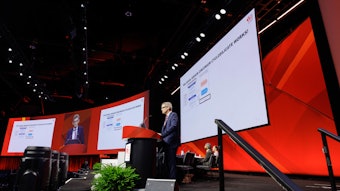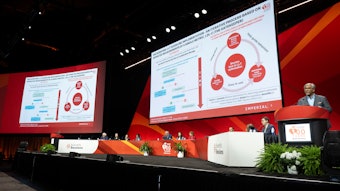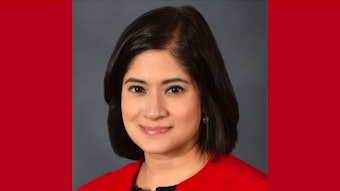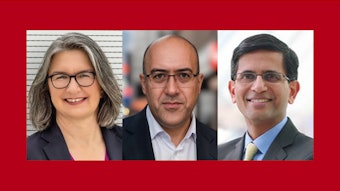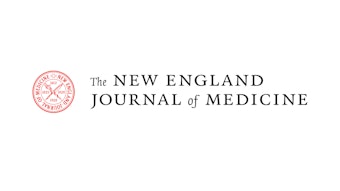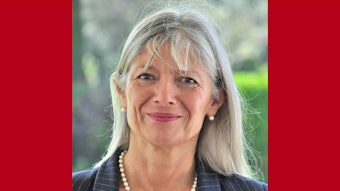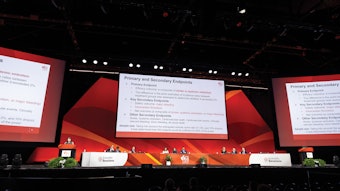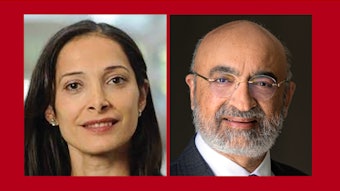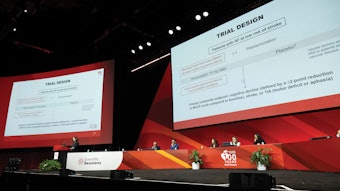Collaborating across the Atlantic on critical care cardiology
CCC specialists in Europe and the U.S. exchange ideas and best practices.

Critical care cardiology, a relatively new field, has made strides in the U.S. But Carlos L. Alviar, MD, FACC, assistant professor of medicine at New York University’s Grossman School of Medicine and director of the Cardiac Intensive Care Unit at Bellevue Hospital Center in New York City, said the specialty has evolved faster in Europe, thanks in part to the European Society of Cardiology’s Association for Acute Cardiovascular Care (ACVC).
“We really have been looking at ACVC as a model for us in America to grow this field,” Alviar said.
That was the impetus behind Saturday’s session, “Building a Trans-Atlantic Collaborative Network in Critical Care Cardiology Education and Care Delivery: Collective Wisdom From AHA and the Association of Acute Cardiovascular Care.”
Critical care cardiology, or CCC, is a relatively new field. It began to take off in 2012 when the American Heart Association published a scientific statement on its evolution and the need for new medical staffing and training modules for cardiac intensive care.
Garima Dahiya, MD, MBBS, one of the panelists in Saturday’s session, said CCC care delivery presents a number of challenges.
“These include regional variability in practice patterns, lack of robust clinical evidence and insufficient societal guidelines directing patient care,” said Dahiya, a critical care cardiologist and senior associate consultant at Mayo Clinic Rochester.
“These issues are inherent to the heterogenous, high-acuity and complex patient population seen in cardiac intensive care units,” she said. “Building a trans-Atlantic collaboration is an important step toward closing the care delivery gap by fostering comparative effectiveness research, learning from a wide scope of real-world practice and achieving joint consensus on treatment paradigms and subspecialty education.”
One critical tool that can help build the collaboration is the AHA’s Cardiogenic Shock Registry. With a mortality rate of about 50%, cardiogenic shock has been at the center of CCC. The registry is designed to help the medical community study cardiogenic shock, including its diagnosis, treatment and outcomes, in patients in acute care clinical settings throughout the U.S.
Christopher Barnett, MD, MPH, associate chief for inpatient services, Division of Cardiology and chief of the Critical Care Cardiology section at University of California, San Francisco Health, said the registry can help U.S. cardiology specialists complement the work being done in Europe.
“The evidence being generated for how to take care of these patients is coming from both sides of the Atlantic and around the world,” Barnett said. “We’re both looking for the best evidence to understand how best to treat patients. We have similar goals in mind, but we’re approaching that using the unique characteristics of tools that we have in the U.S.”
An important difference between the U.S. and Europe regarding research is differing regulatory structures, allowing things to progress along different paths, Alviar said.
“Their regulatory processes have allowed our European colleagues to develop robust research at a different pace, particularly randomized control trials, in conditions that are more challenging to execute in the United States,” he said.
Alastair Proudfoot, MBChB, FRCP (Edin), FFICM, PhD, a consultant in critical care and lead for cardiogenic shock at Barts Heart Centre in London, highlighted potential advantages of the collaboration.
“Rather than being competing entities, trans-Atlantic collaborations should leverage such differences in research priorities, structure and ethics to complement each other,” he said.
“For example, established U.S. registry infrastructure should inform the focus of future clinical trials in Europe, where the deferred consent model may lend itself to clinical trial enrollment in adults lacking capacity. Similarly, the development of collaborative trans-Atlantic biobanks will support mechanistic insights into cardiac critical care and opportunities for validation of novel findings across jurisdictions.”
Regardless of the differences, Barnett said the U.S. and Europe are reaching some of the same conclusions regarding acute cardiac care.
“Despite the fact that we have very different systems … many different people from many different parts of the world are arriving at the same space. I don’t think that’s coincidence,” he said. “Everyone’s taking different pathways, but we are all arriving at the same place.”


